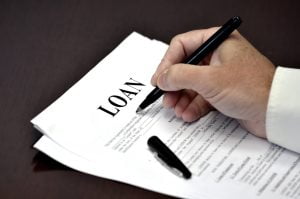Payday Loans vs. Pawnshop Loans: What’s the Better Way to Get Quick Cash?
When unexpected expenses hit and you’re short on cash, it’s easy to feel overwhelmed. Between bills, emergencies, and the general cost of living, finding a quick and safe solution becomes a top priority. Pawnshop loans and payday loans are two easily accessible options for fast cash, but which one is the smarter choice for your wallet?
In this guide, we’ll break down the key differences between payday loans and pawnshop loans, exploring how each works, their costs, and the risks involved, so you can make an informed choice when you need quick cash.
What are Pawnshop Loans?

Pawnshop loans are a popular type of secured or collateral loan, meaning they require an item of value in case you don’t repay. This option is often chosen by people who either can’t or prefer not to take out a traditional loan.
Typical Collateral Items
Common items used as collateral include gold, electronics, and luxury watches. As long as it’s valuable and in decent shape, a pawnshop will likely accept it. While 2.5% of consumers reported using a pawnshop loan in a 2019 survey, the number rises among unbanked households, where traditional financial services are not accessible. This makes pawnshop loans a reliable option for people who need fast cash without the hurdles of credit checks or complex application processes.
How It Works
- Bring in an item of value: You take something like a gold necklace or a guitar to the pawnshop.
- Loan amount determination: The pawnbroker evaluates it and offers you a loan for about 25-60% of its resale value.
- Repayment process: You typically have 30-90 days to repay the loan plus interest. If you can’t, the shop keeps your item—no harm to your credit score.
Appeal of Pawnshop Loans
- No credit check: You won’t get turned down because of bad credit.
- No debt collectors: Can’t repay? You’ll lose the item, but your credit stays intact. It’s that simple.
What are Payday Loans?

Payday loans also known as Cash Advance or Payday Advance might seem like a quick fix, but they often come with substantial risks that can affect your financial health.
Risks Associated with Payday Loans
While payday loans may seem straightforward, the real danger is the cycle of debt they can create. Nearly 20% of payday loans end in default, with many borrowers falling into deeper debt after re-borrowing multiple times. In fact, half of payday loan defaults occur after a borrower has renewed their loan three or more times. This means that even though the loans are marketed as short-term solutions, they can lead to long-term financial struggles
How Payday Loans Work:
- Borrow against your future paycheck: You provide proof of income and, in most cases, your bank account info.
- Write a post-dated check or give bank access: The lender either takes a post-dated check or permission to debit your account when you get paid.
- Repayment process: When payday rolls around, you owe the loan plus a fee (typically $15-$30 per $100 borrowed).
Typical Loan Amounts:
Loan amounts are usually small, ranging from $100 to $500, making them seem like an easy fix for small emergencies.
Interest Rates and Fees
Here’s where it gets tricky—let’s get into the costs behind these loans.
Pawnshop Loan Interest Rates:
- Monthly interest rates: Pawnshop loans typically come with 5-25% monthly interest.
- APR breakdown: While pawnshop loans start with what seems like manageable monthly rates, extending the loan can quickly push the APR up to 60-100%. Even so, this remains far more affordable than many other quick-cash options.
- Example: Let’s say you borrow $300 at a 10% interest rate. After a month, you owe $330. If you can’t repay right away, you can just pay the interest and extend the loan.
Payday Loan Interest Rates:
- Typical APRs: Payday loans are notorious for sky-high interest rates, often climbing to a staggering 200-400% APR or even higher. These steep rates can make what seems like a small loan incredibly expensive.
- Example: Borrowing $300 on a payday loan might mean paying back $345 in two weeks, which doesn’t sound so bad—until you realize that’s an over 300% APR.
Additional Fees:
Both loans come with extra fees, but payday loans are the real culprits when it comes to piling on charges. Miss a payment, and you could get hit with late fees or rollovers that double or triple your costs.
Repayment Terms and Extensions
When it comes to repayment terms, payday loans and pawnshop loans have very different structures, and understanding these differences is key to avoiding costly mistakes.
Payday Loan Repayment
One of the major pitfalls of payday loans is the risk of getting trapped in a cycle of debt. According to the Consumer Financial Protection Bureau (CFPB), four out of five payday loans are rolled over or renewed, meaning that instead of being paid off by the original due date, most borrowers end up extending their loan multiple times. This results in additional fees and can make it even harder to repay the loan.
.
Pawnshop Loan Repayment:
- Duration: You usually have 30-90 days to repay the loan, with the option to extend it.
- Extension options: If you're short on cash, you can extend your loan simply by covering the interest. This keeps your item safe in the pawnshop while buying you more time without additional fees.
Payday Loan Repayment:
- Short duration: Payday loans need to be repaid within 2-4 weeks. Miss that window, and the trouble starts.
- Rollover options: If you don’t have the funds when due, you may be offered a rollover, where you pay more fees just to extend the loan—without reducing the balance at all.
- Consequences of non-payment: Miss a payment on a payday loan, and you could face overdraft fees, aggressive collection practices, or even wage garnishment.
Advantages of Pawnshop Loans over Payday Loans

If you’re still on the fence, here’s why pawnshop loans often come out on top:
- Lower interest rates: Pawnshop loans have significantly lower rates compared to payday loans.
- Flexible repayment: You can extend the loan as long as you keep paying the interest, giving you time to gather funds without penalty.
- No credit check: Bad credit? No problem. Pawnshops don’t care about your credit score.
- No risk to your credit score: If you default on a pawnshop loan, the worst that happens is losing your item, not tanking your credit.
- Forfeit the item instead of paying: Can’t pay? Simply walk away from the item. It’s not ideal, but there’s no legal or financial consequence.
Risks and Considerations
Both pawnshop loans and payday loans come with risks.
- High costs: Even though pawnshop loans are cheaper, both are pricier than traditional loans.
- Losing your item: If you are unable to pay, you lose your collateral. For some, this might be a simple transaction. But if the item has sentimental value, the loss could feel much more personal and impactful.
- Debt cycle: Payday loans are notorious for trapping people in debt cycles, where fees stack up faster than you can pay.
- Financial stability: Relying on either type of loan too often can strain your budget and affect long-term stability.
Alternatives to Consider
Before jumping into a loan, think about some alternatives:
- Personal loans from banks or credit unions: Generally, these have much lower interest rates and better terms. Continue reading about Pawn Loan Vs. Bank Loan.
- Credit card cash advances: While still expensive, advances are often cheaper than payday loans.
- Borrowing from friends or family: If possible, this option avoids interest and fees.
- Local charities or non-profits: These organizations may offer assistance for things like utility bills or food, helping you avoid high-interest loans altogether.
How to Choose the Right Option

Not sure which route to take? Here’s a quick checklist:
- Assess your financial situation: Is this a one-time emergency, or could this become a recurring problem?
- Urgency: If you need cash today and have valuable items, a pawnshop loan is likely the better option.
- Evaluate costs and risks: Always compare the costs and risks of both loan types. Pawnshop loans often offer lower risks.
- Read the fine print: No matter what, read the loan terms carefully to avoid surprises.
Your Financial Path Forward
Whether you opt for a pawnshop loan or a payday loan, the key to avoiding financial pitfalls is responsible borrowing. Take control of your finances by carefully weighing all your options and choosing the loan that best suits your needs. Borrowing wisely can save you from long-term financial issues.
If you're looking for a smarter, more flexible solution with fewer risks, contact New York City Luxury Pawn Loans or Call 646-359-3247 today and take the first step toward a better financial decision.


